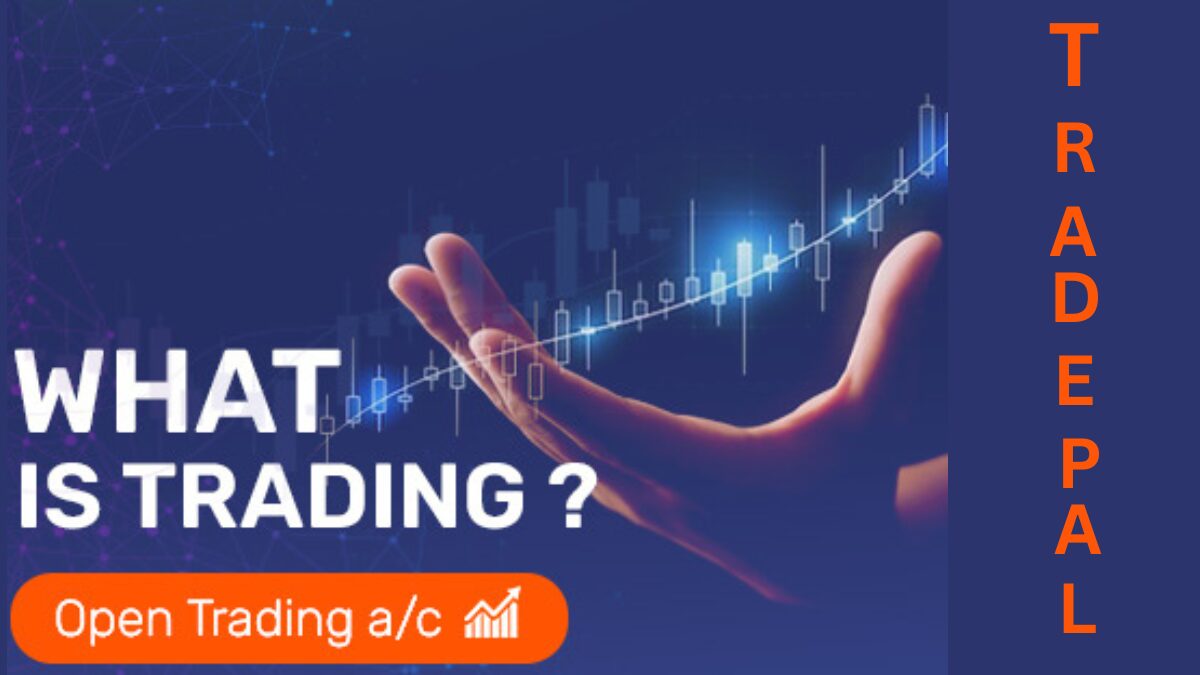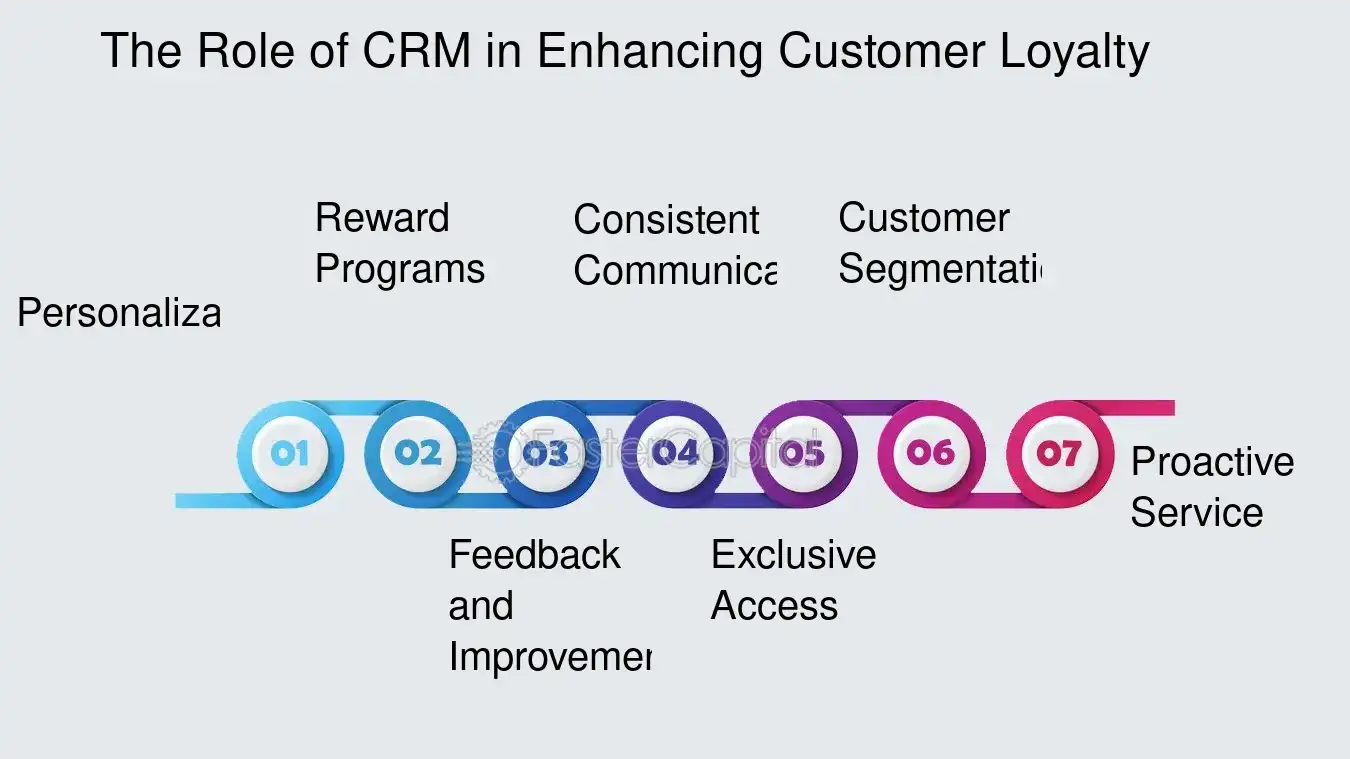Business
Understanding Trading: Unveiling the Dynamics of Financial Markets

Introduction:
Trading, a cornerstone of financial markets, has been integral to human civilization since the inception of commerce. It is a dynamic process that involves the buying and selling of financial instruments such as stocks, bonds, commodities, and currencies. This article aims to demystify the world of trading, providing insights into its definition, historical evolution, the distinction from investing, and practical aspects like trading stocks, economics, and business.
- Definition of Trade
At its core, trade refers to the exchange of goods or services between parties. In the financial realm, however, the concept takes a different form. Trading in financial markets involves the buying and selling of various instruments, each representing a claim on certain assets. These instruments include stocks, bonds, commodities, and derivatives, and their value is determined by market forces.
- Trade Meaning
The meaning of trade in the context of financial markets extends beyond mere transactions. It encompasses a complex web of market dynamics, where participants aim to capitalize on price movements to generate profits. Traders engage in buying or selling assets based on their analysis of market trends, economic indicators, and other factors that influence asset prices.
- A Historical Perspective on Trading
Evolution of Trade
The history of trading is as rich and diverse as the cultures that engaged in it. From the barter systems of ancient civilizations to the sophisticated financial markets of today, trade has evolved in response to societal, technological, and economic changes. The advent of currency and the establishment of marketplaces were pivotal moments in the evolution of trade.
Milestones in Trading History
Throughout history, significant milestones have shaped the trajectory of trading. The Dutch East India Company, established in 1602, is often considered the world’s first publicly traded company. The creation of stock exchanges, such as the Amsterdam Stock Exchange in 1602 and the London Stock Exchange in 1801, marked pivotal moments in the formalization of trading practices.
- Distinguishing Trading from Investing
Core Differences
While trading and investing share the common goal of capitalizing on financial markets, they differ significantly in their approaches and time horizons. Trading is typically shorter-term and involves frequent buying and selling to capitalize on short-term price fluctuations. Investing, on the other hand, is a longer-term strategy focused on holding assets over an extended period, often with the goal of achieving capital appreciation.
Overlapping Elements
Despite their distinctions, trading and investing share overlapping elements. Both require a solid understanding of financial markets, risk management strategies, and the ability to analyze market trends. Successful traders and investors alike rely on fundamental and technical analysis to inform their decisions, and both must adapt to evolving market conditions.
- Exploring the World of Trading Strategies
Trading strategies serve as the compass for traders navigating the vast and unpredictable waters of financial markets. Various approaches exist, each tailored to different market conditions, risk tolerances, and time horizons. Common strategies include day trading, swing trading, trend following, and algorithmic trading. Day traders execute multiple trades within a single day, capitalizing on short-term market movements. Swing traders aim to capture price swings over a few days or weeks, while trend followers ride the momentum of established market trends. Algorithmic trading relies on computer algorithms to execute trades based on predefined criteria, providing a systematic and data-driven approach to the markets.
Understanding and implementing trading strategies require a blend of technical analysis, fundamental analysis, and risk management. Traders often combine indicators, chart patterns, and economic indicators to make informed decisions. Risk management strategies, such as setting stop-loss orders and position sizing, are crucial for protecting capital and minimizing potential losses.
- The Role of Technology in Modern Trading
The landscape of trading has been revolutionized by technological advancements. In the digital age, traders have access to real-time market data, sophisticated trading platforms, and algorithmic trading tools. Electronic trading platforms enable seamless execution of trades, providing traders with instant access to global financial markets. Algorithmic trading, powered by complex algorithms and artificial intelligence, has gained prominence, automating trading processes and executing orders at lightning speed.
Moreover, the rise of online brokerage platforms has democratized access to financial markets, allowing individual investors to participate in trading with ease. Mobile trading apps further enhance accessibility, enabling traders to monitor and execute trades on the go. While technology has opened new avenues for traders, it also underscores the importance of staying informed and adapting to evolving market dynamics.
- Risk Management: Safeguarding Capital in the Trading Arena
Successful traders recognize that risk management is a cornerstone of sustainable trading practices. Markets are inherently unpredictable, and losses are an inevitable part of trading. Effective risk management strategies aim to protect capital and ensure that a series of losses does not lead to catastrophic financial consequences.
Traders often use risk-reward ratios, setting stop-loss orders to limit potential losses while allowing profitable trades to run. Diversification, the practice of spreading investments across different assets, can also mitigate risk by reducing exposure to a single asset class. Continuous monitoring of portfolio risk and adjusting position sizes based on market conditions are essential components of a robust risk management plan.
- Psychology in Trading: Mastering the Mental Game
Beyond charts and indicators, trading is a psychological endeavor. Emotions, such as fear and greed, can significantly impact decision-making, leading to impulsive actions and irrational choices. Successful traders develop emotional intelligence and discipline to navigate the psychological challenges of the markets.
Maintaining a rational mindset involves sticking to a trading plan, regardless of emotional impulses. Journaling trades, analyzing past decisions, and identifying patterns of behavior contribute to self-awareness and improvement. Moreover, recognizing the psychological biases that can influence trading decisions, such as overconfidence or the fear of missing out (FOMO), is crucial for developing a resilient and disciplined trading mindset.
- The Global Impact of Trading: Economics and Beyond
In the broader economic context, trading plays a pivotal role in shaping the global landscape. International trade fosters economic interdependence, enabling countries to specialize in the production of goods and services where they have a comparative advantage. This specialization enhances efficiency and contributes to overall economic growth.
Trade agreements, tariffs, and geopolitical events influence global trade dynamics. Economic indicators, such as trade balances and export-import data, provide insights into the health of economies and impact currency values. The interconnected nature of global financial markets underscores the importance of understanding the broader economic factors that can influence trading decisions.
- Trading in Business: Navigating Commercial Waters
Within the realm of business, trading takes on a practical and operational dimension. Businesses engage in trade to source raw materials, distribute finished products, and optimize supply chains. Efficient business trading involves considerations of cost-effectiveness, market trends, and risk management.
Globalization has expanded the horizons of business trading, allowing companies to tap into international markets. Supply chain management becomes critical as businesses seek to balance efficiency and resilience in the face of global uncertainties. The success of businesses often hinges on their ability to navigate the complexities of trading within the broader economic context.
Conclusion
As we delve deeper into the intricate world of trading, it becomes evident that it is not merely a transactional process but a multifaceted discipline that spans historical epochs, economic landscapes, and individual experiences. Trading strategies, driven by technology and market dynamics, guide traders through the complexities of financial markets. Risk management and psychological resilience are essential attributes for those seeking sustained success in the trading arena.
Moreover, trading’s impact extends beyond the individual trader, influencing global economies and shaping the strategies of businesses. Understanding the broader economic implications of trading enhances the ability to make informed decisions and navigate the interconnected web of financial markets.
For those embarking on their trading journey, the FAQs offer valuable insights into specific aspects, from trading stocks to the economic and business dimensions of trading. As technology continues to evolve and markets adapt, the pursuit of knowledge and the development of skills will remain the guiding principles for those navigating the dynamic world of trading. Whether you’re a seasoned trader or a novice taking the first steps, the journey promises continuous learning and adaptation in the ever-evolving landscape of financial markets.
What is Trading Stocks?
ANSWER:
Trading stocks involves buying and selling shares of publicly traded companies on stock exchanges. Stock traders aim to profit from price movements, capitalizing on short-term fluctuations in market value. Various strategies, including day trading, swing trading, and trend following, cater to different trading styles in the stock market.
What is Trading in Economics?
ANSWER:
In economic terms, trading refers to the exchange of goods and services between individuals, businesses, or countries. It plays a crucial role in the global economy, fostering specialization, efficiency, and international cooperation. Economic trading involves considerations of supply and demand, trade balances, and the impact on economic growth.
What is Trading in Business?
ANSWER:
In the business context, trading refers to the acquisition and disposal of goods or services for commercial purposes. Businesses engage in trading to meet their operational needs, source raw materials, and distribute finished products. Efficient business trading involves considerations of supply chain management, market trends, and cost optimization.
What is a Trading Strategy?
ANSWER:
A trading strategy is a predefined plan of action that guides a trader’s decisions in the financial markets. It encompasses entry and exit points, risk management parameters, and the criteria for selecting tradable assets. Successful trading strategies are grounded in thorough analysis, disciplined execution, and adaptability to changing market conditions.

Business
Crafting Customer Loyalty: The Power of Personalized CRM Experiences

You’re a business owner looking to boost customer retention and satisfaction. But how can you create personalized experiences that keep your customers coming back? This article explores the world of CRM solutions, focusing on how they can help you craft tailored experiences that drive loyalty. We’ll dive into the benefits of CRM systems, highlight key players in the industry and provide practical tips for implementation.
In today’s competitive business landscape, customer loyalty is more crucial than ever. As companies strive to differentiate themselves, personalized experiences have become a key factor in retaining customers and fostering long-term relationships. Customer Relationship Management (CRM) solutions offer powerful tools to achieve this goal, enabling businesses to create tailored interactions that resonate with their audience.
The Power of Personalization
Personalization is no longer a luxury – it’s an expectation. Customers want to feel valued and understood, and CRM systems provide the means to deliver on these expectations. By leveraging data and insights, businesses can craft experiences that speak directly to individual preferences and needs.
One company leading the charge in this area is Lime Technologies. Their innovative CRM solutions Lime Technologies have helped countless businesses transform their customer relationships. With a focus on user-friendly interfaces and powerful analytics, Lime Technologies has become a go-to CRM leverantör for companies across Sweden and beyond.
Unlocking the Potential of CRM
CRM systems offer a wealth of benefits for businesses looking to enhance customer loyalty:
- Centralized Customer Data: By consolidating customer information in one place, CRM systems enable businesses to gain a 360-degree view of their clients. This comprehensive understanding allows for more informed decision-making and targeted communications.
- Automated Processes: CRM solutions streamline workflows, freeing up time for employees to focus on building relationships rather than managing administrative tasks. This efficiency boost can lead to improved customer satisfaction and loyalty.
- Predictive Analytics Advanced: CRM systems, like those offered by CRM företag such as Lime Technologies, use AI and machine learning to predict customer behavior and preferences. This insight allows businesses to proactively address customer needs and anticipate future trends.
Implementing CRM for Success
To maximize the benefits of CRM solutions, consider the following tips:
- Choose the Right System: Select a CRM system that aligns with your business needs and goals. Companies like Lime Sverige offer a range of options tailored to different industries and company sizes.
- Invest in Training: Ensure your team is well-versed in using the CRM system. Many providers, including Lime Stockholm, Lime Göteborg and Lime Lund, offer comprehensive training programs to help businesses get the most out of their CRM investment.
- Integrate Across Channels: For a truly personalized experience, integrate your CRM system across all customer touchpoints. This holistic approach ensures consistency and continuity in customer interactions.
The Future of CRM
As technology continues to evolve, so too do CRM solutions. Svenska CRM system providers like Lundalogik Lime CRM are at the forefront of innovation, developing new features and capabilities to meet the changing needs of businesses and customers alike.
From AI-powered chatbots to advanced data analytics, the future of CRM promises even greater opportunities for personalization and customer engagement. By staying ahead of these trends and leveraging the power of CRM solutions, businesses can create lasting customer loyalty and drive long-term success.
In the end, crafting personalized experiences through CRM is about more than just technology – it’s about building meaningful connections with your customers. By harnessing the power of CRM solutions, businesses can create experiences that resonate, engage and ultimately foster lasting loyalty.
Business
Why Metal Bending is Key to Efficient Sheet Metal Fabrication

For several reasons, the bending process is essential to effective sheet metal manufacturing. Sheet metal bending has several benefits that improve output, economy, and product quality, regardless of the project’s complexity—it could be simple brackets or intricate car components.
1. Cost-Effective Production
With sheet metal bending, manufacturers may build complex forms out of a single metal sheet without having to weld or glue many sections together. By doing this, assembly pieces are kept to a minimum, which lowers production time and material costs. Manufacturers can save production costs and turnaround times by bending a sheet into the desired shape rather than cutting and assembling individual sections.
Additionally, sheet metal bending is now more efficient than ever because of developments in automation and CNC (Computer Numerical Control) technology. For example, automated press brakes can handle exact bends with little assistance from a human, saving labor expenses and eliminating mistakes made during manufacturing. Consistent outcomes are guaranteed by this degree of automation, which is crucial for businesses that depend on mass production.
2. Enhanced Design Flexibility
The design flexibility that sheet metal bending provides is another factor that makes it essential for effective manufacture. Modern bending machinery makes it easy for producers to generate elaborate curves and multi-angled components, among other complex designs. Businesses are able to quickly prototype new designs and satisfy a wide range of client requests because of this degree of flexibility.
For instance, delicate components are housed in bent metal enclosures in the electronics sector. For these enclosures to fit well and offer sufficient protection, they must be precisely made. Customized designs that adhere to precise standards are made easier by the ability to bend metal into precise, intricate shapes.
Additionally, sheet metal bending accommodates a variety of material thicknesses, allowing producers to deal with thin, light sheets for applications where strength must be maintained but weight must be decreased. This is especially crucial in sectors like aircraft, where weight loss is essential to effectiveness and performance.
3. Structural Integrity and Durability
The preservation of the material’s structural integrity during the fabrication process is guaranteed by the bending of sheet metal. When bending is done properly, the material is strengthened along the bent lines, improving its resistance to stress and fatigue as well as its overall longevity. This is particularly crucial for sectors like construction and the automotive industry that demand sturdy components.
For instance, sheet metal bending is used by automakers to make chassis parts, body panels, and brackets that can resist normal wear and tear. These parts are made sturdy and resistant to bending or breaking under stress by the bending process, which results in automobiles that last longer and require less maintenance.
Modern bending processes provide precision and uniformity, which enhance the overall quality of the manufactured product. Manufacturers can create products with precise tolerances and dimensional accuracy thanks to the technique’ low material distortion, which lessens the need for secondary steps like trimming or reworking.
4. Reduced Waste and Sustainability
Sheet metal bending is a big part of cutting waste in an era where manufacturers are starting to prioritize sustainability. Unlike other fabrication techniques like laser cutting or stamping, this procedure produces little to no scrap because it doesn’t require cutting or removing material. This reduces the need for waste disposal and conserves raw materials, both of which lead to a more sustainable production process.
Furthermore, by reducing excess, producers can optimize material utilization through the application of sophisticated bending techniques. For example, producers may guarantee that the metal sheet is used efficiently and lower the possibility of errors that could result in trashed components by properly estimating the needed bend radius and angles.
5. Widespread Applications Across Industries
Given its adaptability, sheet metal bending is a crucial procedure in many different sectors. Manufacturers may produce parts with exceptional precision and durability using the bending process, whether they are utilized to construct parts for consumer electronics, medical equipment, or industrial gear.
For instance, sheet metal bending is utilized in the aerospace sector to make robust and lightweight parts for engine mounts, wings, and fuselages of aircraft. The success of the finished product depends on the precision of the bending process because these parts must adhere to strict safety and performance standards.
Bent metal sheets are used in the building industry for structural frames, cladding, and roofing. Architects and engineers can design buildings with distinctive features while preserving the strength and structural integrity of the structure because metal can be bent into precise shapes.
Conclusion
A key approach for productive sheet metal services is sheet metal bending, which enables producers to design intricate, long-lasting, and reasonably priced components. The method is crucial to the success of many different businesses since it provides substantial benefits in terms of design flexibility, structural integrity, and sustainability.
Manufacturers can achieve strict performance criteria, streamline production processes, and minimize waste by utilizing the capabilities of contemporary bending equipment. Sheet metal bending will continue to be a crucial component of productive and sustainable production as long as industries continue to change and call for more creative solutions.
Marketing
Skipene Secrets Revealed to Boost Your Productivity

In a world where productivity is king, finding innovative ways to optimize your workflow can feel like searching for a needle in a haystack. Enter “skipene”—a term that might sound unfamiliar, but one that holds the potential to revolutionize how you approach tasks and time management. In this blog post, we’ll uncover the skipene phenomenon, demystify its applications, and provide actionable strategies to harness its power in your everyday life.
By understanding skipene, you’ll unlock new levels of efficiency and creativity, paving the way for a more balanced and fulfilling professional and personal life. Whether you’re a busy professional, a student juggling multiple responsibilities, or someone simply looking to make the most of your time, skipene could be the key you’ve been seeking.
Get ready to explore the concept of skipene, its roots, and the benefits it offers. We’ll guide you through practical tips to implement skipene in various scenarios, supported by real-life examples and expert insights. By the end of this post, you’ll have a comprehensive understanding of how to make skipene work for you and transform your productivity game.
What is Skipene?
Skipene is a term that refers to a unique approach to task management and prioritization. At its core, skipene emphasizes the art of selective focus, enabling individuals to concentrate on high-impact activities while minimizing distractions. This approach is particularly valuable in today’s fast-paced world, where information overload and constant interruptions can hinder productivity.
The origins of skipene can be traced back to time management principles, but it distinguishes itself by advocating for a more intentional and strategic allocation of time and energy. Rather than attempting to tackle every task on your to-do list, skipene encourages you to identify and prioritize activities that align with your goals and values.
One of the key aspects of skipene is its adaptability. Whether you’re working on a major project, planning your day, or simply trying to improve your work-life balance, skipene can be tailored to suit your specific needs and objectives. By integrating skipene into your daily routine, you’ll be better equipped to manage your time, reduce stress, and achieve your desired outcomes.
The Science Behind Skipene
To fully appreciate the power of skipene, it’s essential to understand the cognitive processes that underpin it. At the heart of skipene lies the concept of cognitive load, which refers to the amount of mental effort required to perform a task. By harnessing skipene, individuals can optimize their cognitive load, allowing for improved focus, decision-making, and problem-solving.
Research has shown that our brains are not designed for multitasking. In fact, attempting to juggle multiple tasks can lead to decreased productivity and increased errors. Skipene addresses this challenge by encouraging individuals to concentrate on one task at a time, thereby reducing cognitive load and enhancing overall performance.
Another scientific principle that supports skipene is the Pareto Principle, also known as the 80/20 rule. This principle suggests that 80% of our results come from 20% of our efforts. By focusing on high-impact tasks, skipene helps individuals maximize their output while minimizing unnecessary work. This approach not only boosts productivity but also fosters a sense of accomplishment and motivation.
The Benefits of Skipene
Adopting a skipene mindset can yield a multitude of benefits, both personally and professionally. One of the most significant advantages is the ability to enhance focus and concentration. By prioritizing essential tasks and eliminating distractions, skipene empowers individuals to work more efficiently and effectively.
Skipene also promotes better time management. By honing in on high-priority activities, individuals can allocate their time more strategically, ensuring that they make progress toward their goals. This approach not only boosts productivity but also leads to a greater sense of control and fulfillment.
Furthermore, skipene encourages a healthier work-life balance. By streamlining tasks and reducing the mental clutter associated with constant multitasking, individuals can create more time for self-care, relaxation, and meaningful connections. This holistic approach to productivity fosters overall well-being and satisfaction.
Implementing Skipene in Your Daily Routine
Integrating skipene into your daily routine doesn’t require a complete overhaul of your current practices. Instead, it involves making small, intentional adjustments that can have a big impact on your productivity and well-being. One effective strategy is to start each day by identifying your top three priorities. These should be tasks that align with your goals and will have the most significant impact on your progress.
Once you’ve identified your priorities, create a schedule that allocates dedicated time blocks for each task. During these time blocks, eliminate any distractions and focus solely on the task at hand. This practice, known as time blocking, is a core component of skipene and can significantly enhance your ability to concentrate and complete tasks efficiently.
In addition to time blocking, consider incorporating regular breaks into your schedule. Research has shown that taking short breaks throughout the day can boost productivity and creativity. Use these breaks to recharge, reflect, or engage in activities that bring you joy. By balancing focused work with moments of relaxation, you’ll be better equipped to maintain your energy and motivation throughout the day.
Skipene in Action: Real-Life Examples
To illustrate the power of skipene, let’s explore some real-life examples of individuals who have successfully integrated this approach into their lives. Meet Emily, a marketing manager who struggled with managing her workload and meeting deadlines. By adopting skipene, Emily began prioritizing her most critical tasks and allocating specific time blocks for focused work. This shift not only improved her efficiency but also reduced her stress levels and enhanced her overall job satisfaction.
Another example is Alex, a college student juggling coursework, part-time work, and extracurricular activities. By applying skipene principles, Alex learned to prioritize her academic responsibilities and allocate time for studying and assignments. This approach allowed her to achieve better grades while maintaining a healthy work-life balance.
These examples demonstrate that skipene is not a one-size-fits-all solution. Instead, it’s a flexible approach that can be tailored to suit individual needs and circumstances. By experimenting with different strategies and finding what works best for you, you can unlock the full potential of skipene and achieve your desired outcomes.
Overcoming Common Challenges with Skipene
While skipene offers numerous benefits, it’s important to acknowledge that implementing this approach may come with its own set of challenges. One common obstacle is the difficulty of letting go of the multitasking mindset. For many individuals, the habit of juggling multiple tasks simultaneously is deeply ingrained. To overcome this challenge, practice mindfulness and cultivate self-awareness. By staying present and focused on the task at hand, you can gradually break free from the multitasking cycle.
Another challenge is the fear of missing out (FOMO). In a world where opportunities and information are constantly at our fingertips, it’s natural to feel apprehensive about narrowing your focus. To address this concern, remind yourself of the long-term benefits of skipene and trust in your ability to make informed decisions. By prioritizing tasks that align with your goals, you’ll be better positioned to achieve meaningful and lasting success.
Finally, consistency can be a hurdle when integrating skipene into your routine. To build lasting habits, start small and gradually increase the complexity of your skipene practice. Celebrate your progress along the way and remain patient with yourself as you develop new skills and strategies.
Cultivating a Skipene Mindset
Developing a skipene mindset involves more than just adopting new practices—it’s also about shifting your perspective on productivity and success. At the heart of skipene is the belief that less can be more and that quality often trumps quantity. By focusing on high-impact tasks and minimizing distractions, you can achieve greater results with less effort.
To cultivate a skipene mindset, begin by reevaluating your goals and values. Reflect on what truly matters to you and identify the tasks and activities that align with your vision. This clarity will serve as a guiding compass as you navigate your skipene journey.
Additionally, practice gratitude and celebrate your achievements, no matter how small. Recognize that progress is a process, and every step forward is a victory. By fostering a positive and growth-oriented mindset, you’ll be more resilient in the face of challenges and better equipped to harness the power of skipene.
Skipene Tools and Resources
While skipene is primarily a mindset and approach, there are several tools and resources that can support your skipene practice. Consider using productivity apps and software that facilitate time blocking, such as Todoist, Trello, or Google Calendar. These tools can help you organize your tasks, set reminders, and track your progress.
In addition to digital tools, explore books and articles that offer insights and strategies related to skipene principles. Some recommended reads include “Deep Work” by Cal Newport, “The One Thing” by Gary Keller, and “Atomic Habits” by James Clear. These resources can provide valuable guidance and inspiration as you continue your skipene journey.
Finally, connect with like-minded individuals who share your commitment to productivity and personal growth. Join online forums, attend workshops, or participate in mastermind groups to exchange ideas, experiences, and support. By building a supportive community, you’ll be better equipped to stay motivated and accountable as you cultivate skipene in your life.
Measuring the Impact of Skipene
To fully appreciate the benefits of skipene, it’s essential to regularly assess its impact on your productivity and well-being. Begin by setting specific, measurable goals that align with your skipene practice. These goals could relate to work performance, personal development, or overall life satisfaction.
Track your progress over time and identify any patterns or trends that emerge. This data can provide valuable insights into the effectiveness of your skipene strategies and highlight areas for improvement. By regularly evaluating your progress, you’ll be better equipped to refine your approach and make informed decisions.
In addition to quantitative metrics, consider reflecting on qualitative aspects of your skipene experience. How do you feel about your work-life balance? Are you more focused and motivated? Do you experience greater fulfillment and satisfaction in your daily activities? These reflections can offer valuable insights into the holistic benefits of skipene and guide your ongoing practice.
Conclusion
In today’s fast-paced world, the ability to optimize productivity and manage time effectively is more important than ever. Skipene offers a powerful approach to achieving these goals, empowering individuals to focus on high-impact tasks, reduce distractions, and cultivate a more balanced and fulfilling life.
By understanding the principles of skipene and integrating them into your daily routine, you can unlock new levels of efficiency, creativity, and well-being. Whether you’re a busy professional, a student, or someone seeking greater work-life balance, skipene provides a flexible and adaptable framework to help you achieve your desired outcomes.
Remember that skipene is a journey, not a destination. Be patient with yourself as you explore new strategies and build lasting habits. Celebrate your progress along the way and remain open to growth and learning. With skipene as your guide, you have the power to transform your productivity game and create a life that aligns with your values and aspirations.
1. What is skipene?
Answer:
Skipene is a productivity approach that emphasizes focusing on high-impact tasks while minimizing distractions. It’s founded on the principle that quality is more important than quantity, encouraging individuals to achieve more by doing less.
2. How can I start incorporating skipene into my daily routine?
Answer:
Begin by identifying your goals and the tasks that align with them. Implement time-blocking techniques using productivity apps and gradually develop habits that reinforce the skipene mindset. Start small, and build complexity over time to integrate skipene effectively.
3. What tools and resources are recommended for practicing skipene?
Answer:
Tools like Todoist, Trello, and Google Calendar can help organize tasks and time efficiently. Additionally, books such as “Deep Work” by Cal Newport and “Atomic Habits” by James Clear offer valuable insights to guide your skipene journey.
4. How can I measure the success of my skipene practice?
Answer:
Set specific measurable goals and track your progress regularly. Assess both quantitative metrics, such as task completion rates, and qualitative reflections, like improvements in work-life balance or personal satisfaction, to gauge skipene’s overall impact.
5. Can skipene benefit anyone, or is it suited to specific individuals?
Answer:
Skipene is versatile and can benefit anyone seeking improved productivity and balance. Whether you’re a professional, a student, or someone seeking a more fulfilling life, skipene can provide a flexible framework to help achieve personal and professional success.
-

 Marketing6 months ago
Marketing6 months agoUnlocking the Potential of FSI Blogs: A Comprehensive Guide
-

 Health8 months ago
Health8 months agoAnxiety: Causes and Solutions
-

 Blog8 months ago
Blog8 months agoThe Seating Arrangement Surprise: A Story About Sitting Next to a Scary Yakuza
-

 Blog8 months ago
Blog8 months agoUnderstanding Chancerne: Unveiling the Science Behind this Enigmatic Phenomenon
-

 Tech7 months ago
Tech7 months agoOprekladač: A Comprehensive Guide to AI Translation Technology
-

 Tech8 months ago
Tech8 months agoUnveiling the Wonders of divijos: Revolutionizing Our World
-

 Health6 months ago
Health6 months agoDiscover the World of Ztec100.com: Your Ultimate Guide to Tech, Health, and Insurance
-

 Tech6 months ago
Tech6 months agoSukıtır: The Future of Urban Mobility




